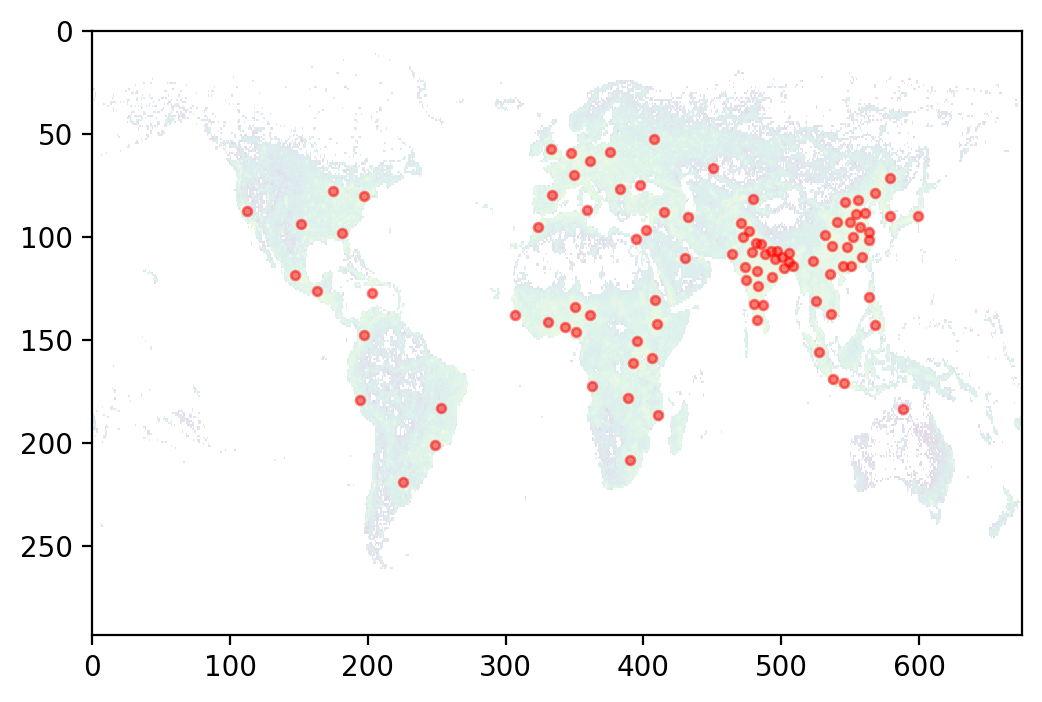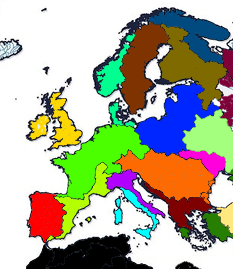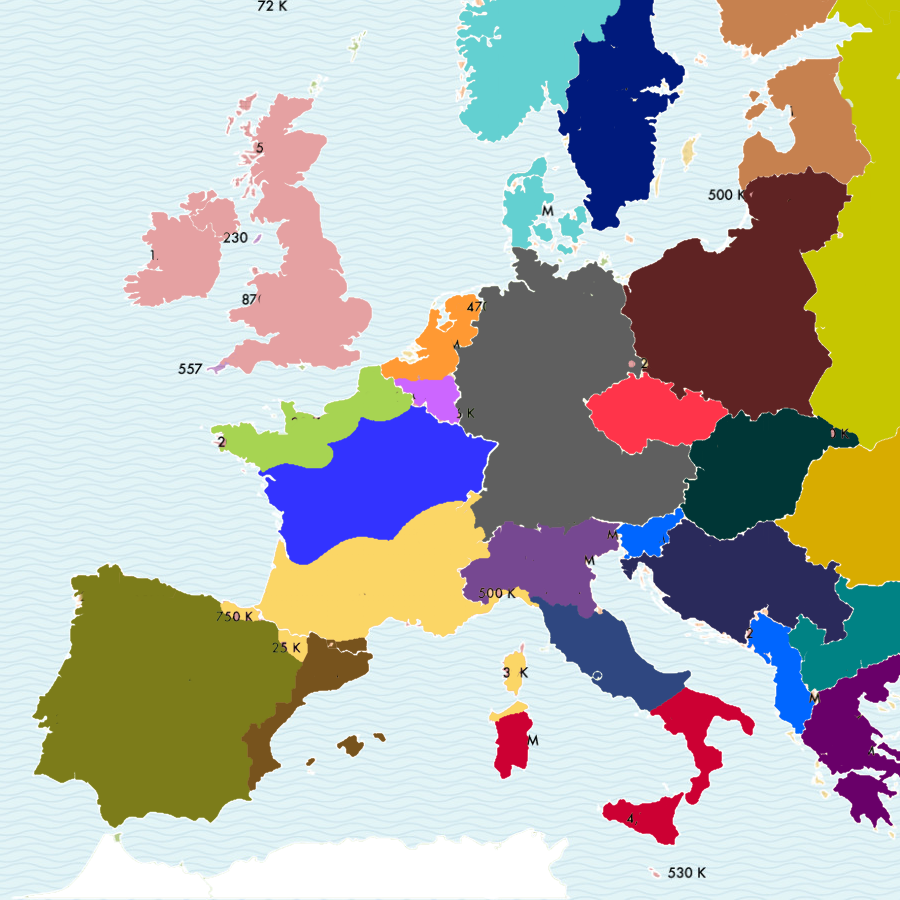Click here to see the map.

This chapter has no summary.
There are four basic approaches to working out the political situation in the Magical World. None of them work perfectly, but if you’re reading and writing HP fanfic then you should be used to that by now.
Canonically, we know that, besides Britain, there are ministries for a few other countries:
The superscript letters refer to the sources for each Ministry: B = the seven original books, B+ = the Fantastic Beasts and Quidditch books, F = films, G = video games, L = Harry Potter Page to Screen: Limited Edition , and P = Pottermore.
There is also a Magical Congress of the United States,P and a Council of Magic in Argentina.P There is probably not a Ministry of Ireland, because Fudge represented the Irish at the Quidditch World Cup. This means that other national Quidditch teams do not necessarily represent independent states, e.g. the Transylvanian National Quidditch Team may be one of several Quidditch teams in Magical Romania or wherever.
But once you’ve decided that there is such a country as Magical Russia, where do you go from there? Definitely, there should be something of the “funhouse mirrors” perspective that Magical Britain reflects upon its Muggle counterpart.
I also try to read about the fantasy genre as it stands in that country. In Russia, for example, there’s a very obvious strain of “two types of wizarding person, who are engaged in some sort of cold war” trope running through stories like Tanya Grotter (Dmitri Yemets) and World of Watches (Sergei Lukyanenko). Not much has been made of this in There is Nothing to Fear ’s Russia, but it’s the thematic backbone of Magical Russia in another story that I’ve been working on.
Not everyone likes Rowling’s worldbuilding for Magical Murica. For alternatives, I chiefly recommend the Confederation from Inverarity’s Alexandra Quick series, and the Continental Union of Wizards from CogAndStar’s Unionverse . There is also an American Wizarding tumblr blog that might have some ideas that you like, and another called Wizarding America.
Kitzsah's “Map of the Modern Wizarding World,” mentioned above, also has a map of Indigenous American trade routes, and talks a lot about the history of North America, the Jewish Diaspora, and the Gilded Age in the U.S.
The essay “ Populating Wizarding America ,” by Dr. Platypus, is also worth a read. It gives a state-by-state breakdown of the wixen population in the USA, the wixen populations of the top twenty most populated (by wixes) cities, some figures for school-age children and non-humans, and a lengthy section on Quodpot. Dr. Platypus also raises some interesting points about population centers that are worth considering even for worldbuilding outside the United States:
Section III, “Communities,” is worth reading as well for its discussion about “all-wizarding settlements” like Hogsmeade, “mixed wizard settlements” like Ottery St. Catchpole, and “isolated wizarding settlements” like Little Hangleton. Regardless, keep in mind that the essay assumes 1 wix for every 10,000 muggles, rather than (as Taure assumes in his Canon Plus document) 3 wixes for every 10,000 muggles.
In “Map of the Modern Wizarding World,” Kitzsah posted a political map of the world circa 1692, when the Statute of Secrecy was first enforced. You can find a larger version of that map here. The same document also posits that the ICW is relatively toothless and that Magical Britain did not colonize Magical India, and discusses (in ch. 5) what Magical Germany might look like and how it might have formed.
The blogger skluug created a population density map, which visualizes the world’s population as one hundred dots, each representing 80 million people. My immediate thought upon seeing this was that it could be an interesting basis for defining magical countries.

Other features can be used to draw out magical countries. Here’s a quick-and-dirty Magical Europe based on the river basins marked out on this map from Hydrosheds.org . I would tweak this further before I used it in a story, but the most important thing is that this took about five minutes, rather than the five weeks that it might take to start from IRL 17th century borders and invent four centuries of shadow historical politicking.

Maps on the Web , which I’ve also linked in Recommended Resources, is really useful for good maps. Below is a quick-and-dirty Magical Europe based on this map of native speakers in different languages.

The “rivers” tag and this size comparison of Argentina and various European countries could also be good launching points.
Short profiles of magical countries for you to use as fodder, whether you just want a brief sketch for making offhand references and (more wisely than me) have resisted the urge to spend a day's research for a single sentence, or you want a foundation on which to build in greater detail, or whatever.
Greece (Hellas) || It is said in this country that there are no Muggle-borns, only Half-bloods of unknown provenance, for the blood of heroes springs only from heroes. Even some Pure-blood children end up raised by Muggles, for it is rare but not unheard-of for Grecian wixes to place their offspring with Muggles (especially if they are unwanted), and an accomplished Muggle-born like Hermione Granger would have no trouble finding an established family that was willing to claim her as one of their own. Greek society is dominated by heroic mystery cults, which serve as both educational and political institutions.
Italy, Italic States (Civitadi Italica) || The Italian Peninsula has not been fully unified, even as a confederation, since the days of the Roman Empire. It is generally said to be comprised of the Three Proscribed Cities (Controma, Villa Ferrata, and Occultus Mons), each of which has unique strictures on who may live or even enter therein, and the Three Prescribed Colleges. Latin is still spoken in parts of Italy, though it has changed since Roman and even Medieval times, just as English has changed over the centuries, and so may occasionally be called Modern or Vernacular Latin.
Scandinavia (Norden) || Roughly corresponds to the Nordic countries: Denmark, Greenland, Iceland, Norway, and Sweden, but not including Finland (which includes Estonia and large parts of Sápmi or Sami Country). The magical population is higher than average: about one-fourth live on Svalbard, Iceland, the Faroes, and other islands, and one-half live in the upper parts of Norway and Sweden, what the Muggles call Nord-Norge and Norrland. Consequently, they are typically more removed than usual from Muggles. The official language, which is called Mål or Skandi, is mostly mutually intelligible with Norwegian, Swedish, etc., though noticeably archaic.
Peru || As far as wixes are concerned, "Peru" spans most of the South American continent, from the Darien Gap to the north edge of Patagonia, eclipsed only by Alta Brasil in the west. Following the Statute of Secrecy, Latin American wixes continued to use the administrative structure of the two Viceroyalties of the Spanish Empire. "New Spain" has since collapsed, but Peru remained intact and even incorporated some of the territories once belonging to New Spain, and now governs through a series of "magical councils" that handle local affairs. Where necessary to avoid confusion, wixes may refer to "Muggle Peru."